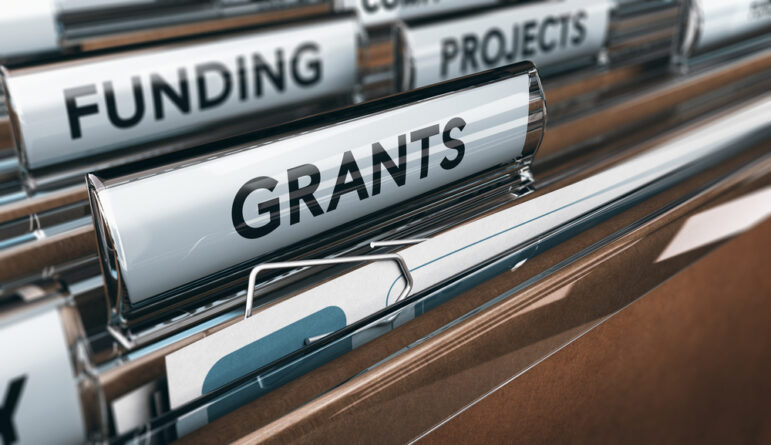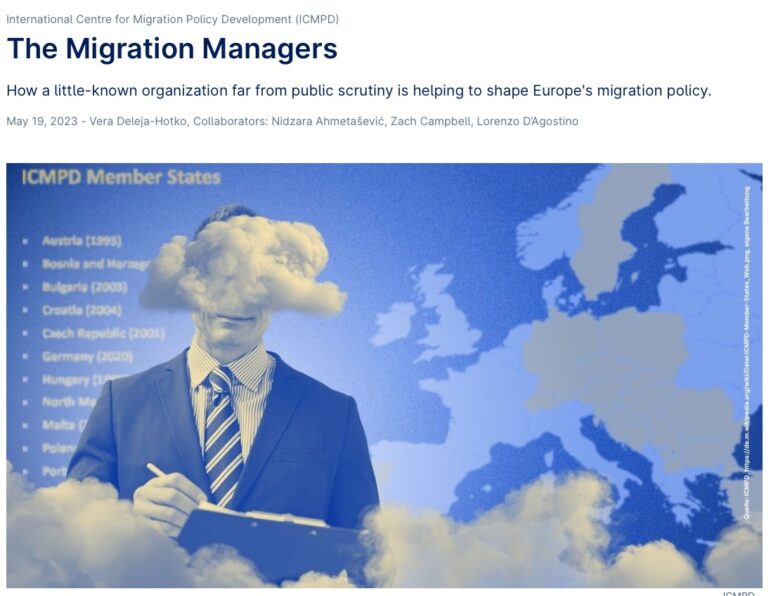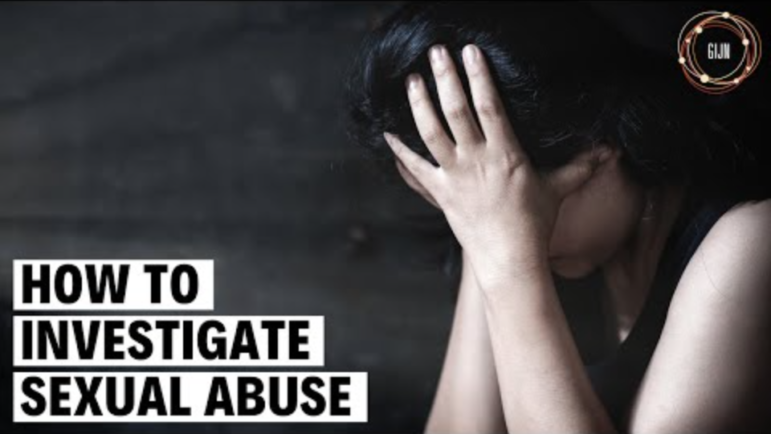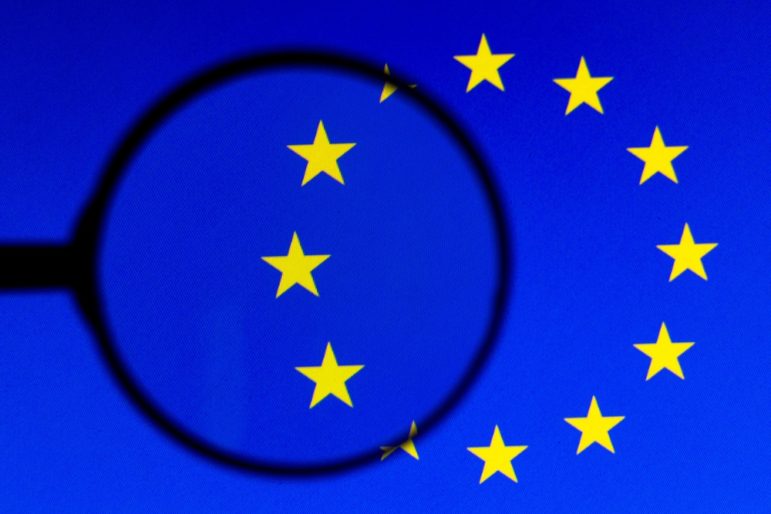

Image: Shutterstock
Pitch Perfect: An Insider’s Tips for Writing a Successful Investigative Journalism Grant Proposal
Read this article in
Editor’s Note: This article was adapted from a presentation at Dataharvest 2023 by Timothy Large, who is program manager of the IJ4EU cross-border journalism project at the International Press Institute. GIJN French editor Alcyone Wemaëre spoke with him about his insights and advice.
Investigative journalism takes time and money. It is no surprise, then, that writing a grant proposal is now part of the job for many freelancers and staff reporters.
If you’ve already applied for a grant to finance one of your investigations, you know that the process is time consuming and discouraging. This is especially true if your application was never accepted or, worse, rejected with a note that you almost got it.

Timothy Large is the program manager of IPI’s IJ4EU journalism project. Image: Screenshot, IPI
But if you were successful, you know how helpful and possibly life-changing a grant can be. However, it is unusual to obtain a grant if you’re new to the process. At the recent 2023 Dataharvest European Investigative Journalism Conference, Timothy Large, director of independent media programmes at the International Press Institute (IPI), said he was very aware of the “proposal fatigue” and of “the heaviness of having to squeeze all your dreams into a restrictive application form.” Nevertheless, he encouraged investigative reporters — even those new to grant writing — to try.
IPI, Large noted, leads the Investigative Journalism for Europe (IJ4EU) fund, which gives grants of up to €50,000 (US$54,000) to support cross-border, collaborative investigations. To date, IJ4EU has allocated around €4 million (US$4.3 million) in funding to teams all across Europe and beyond. And he pointed out that, statistically, applicants for a IJ4EU grant had about a “20% chance of being in the game.” But, to overcome the common challenges facing reporters pursuing these kinds of funds, Large stressed the need to be aware of what he calls “the grant proposal paradox.”
“Writing a grant proposal is incredibly easy… and incredibly hard,” he explained. “The pressure makes very clever people do dumb things, while others freeze and get paralyzed.” As an insider, he offered plenty of grant-writing tips and advice to the Dataharvest audience that GIJN is happy to share, with his permission.
What Does a Successful Grant Proposal Look Like?
Bad grant proposals might best be labeled as “confused.” Successful grant proposals are focused and concise. Sometimes this focus is hard to pin down, so Large recommends you make sure your grant pitch has three key elements at the outset:
- Your investigation can be condensed down to one sentence.
- It tells a story.
- It will ultimately see the light of day.
In addition to these fundamental elements, Large says there are a few other ingredients to consider:
- Make your pitch memorable: The jury or NGO often has many grant applications to review, you need to grab their attention.
- Present a good narrative.
- Build trust and confidence in your ability to carry out the project.
If you tick all these boxes, your odds of getting a grant go up substantially.
Consider the Juror’s Perspective
Applying for a grant can feel like engaging with a mysterious black box, but the selection process more or less always follows the same steps:
- Screen for eligibility.
- Shortlist for jury’s guidance only.
- Independent jury chooses projects for funding.
Jurors tend to be senior-level editorial people or highly acclaimed journalists. Large also pointed out that they are also humans with their own personalities, life experiences, and ideas who will tend to see things through their own lenses. So, he said the dynamic of a jury panel can include a few typical profiles from “ferocious” to generous, “perfectionist” to easygoing. As a result, it’s important to understand that a grant proposal may have to satisfy very different expectations, even in a small selection committee.
Large also revealed common jury remarks — and the underlying issue — that are hallmarks of a soon-to-be-rejected proposal:
- “I am not convinced,” “I don’t see/get it:” Failure of clarity
- “I am not feeling this project/writer:” Failure to inspire confidence
- “This isn’t new:” Failure of revelation
- “This isn’t investigative journalism:” Failure to fully share your method
- “They’re in fantasyland:” Failure to demonstrate feasibility
To Sell Your Story, Answer These 6 Key Questions
In their minds, jurors have a list of questions that want resolved when they review grant applications. And they come with a hierarchy, so make sure you prioritize to answer the following:
What’s the Story?
Provide a narrative, not just a generic theme or a general subject. For example, Large noted that for the investigation The Migration Managers, which was supported by a €37,400 (US$40,300) IJ4EU grant in 2022, the basic details were as follows:
The theme was: migration
The subject was: abuses of Europe’s migration policy.
The story was: a little-known EU-funded agency is trying to block migrants from reaching Europe.
But this kind of dry recitation makes for a less effective grant pitch, he warned. Instead, try weaving the information together into a punchy, one-sentence narrative.
In that story’s case, the more effective result looked something like this: “This is a story of how a little-known EU-funded agency — The International Centre for Migration Policy Development (ICMPD) — is working to keep migrants from reaching Europe.” Note that this one-sentence summary is very similar to the published story’s sub-head (see image below).

IPI’s IJ4EU gave a grant of €37,400 to help produce this collaborative investigation into a little-known EU-funded migration agency. Image: Screenshot, FragDenStaat
What’s the Big Reveal?
Revealing something new is perhaps the most powerful result of an investigation. So, explaining what you plan to uncover should be a major aspect in your application. Try to include a key sentence that previews this big payoff: “We seek to reveal/expose that…”
In The Migration Managers, this big reveal sentence looked like this: “We seek to reveal that ICMPD has become a key European partner on issues of migration, despite alarming activities in a number of countries (Morocco, Libya, Bosnia) that directly leads to human rights abuses against migrants and refugees.”
So What?
You should also take time to explain to the jury why the story matters, who the affected stakeholders aare, and the larger public concern at issue. The prompt for this might look like: “This matters (to X group) because… ”
Likewise, in The Migration Managers investigation, this was conveyed by saying: “This matters to the European opinion because by outsourcing Europe’s migration policy, the European Commission seeks to avoid scrutiny and accountability for its actions.”
What’s the Proof?
Here, you can go into detail about how you’re going to construct your investigation and the sources you expect to use: court records, public datasets, leaked documents, whistleblowers, inside accounts, etc.
For example: “We will substantiate this by a, b, and c… ”
For The Migration Managers, this was explained like this: “We will substantiate this by internal documentation, received via freedom of information requests.”
How Are You Telling the Story?
The jury needs to “see” the investigation. Will it be a long form story, a series of articles published in French and Spanish, a six-part podcast, a TV documentary?
Complete: “Our investigative result will take the form of a… ”
What Will Be Its Visual ‘Flavor?’
This is a bonus question, but if you can, give the jury or selection committee an idea of any visuals, charts, interactive graphics, etc., you might use to bolster the impact of the investigation.
Complete: “We will illustrate our findings with… ”
The answers to these six questions are the backbone of a strong grant proposal, Large emphasized. You should strive to ensure the jury comes away from your application with a clear idea about your intentions for each one.
Introduce Yourself — And Why You Can Be Trusted With Their Money
Now that the roadmap of the story is clear, Large said you need to convince the jury that you or your team are best suited to follow this reporting journey. To do this, add more details that will inspire confidence in your team and how you’ll be (wisely) using the grant money for your investigation.
You have to explain to the jury who you are. It sounds simple, but it’s easy to forget or get wrong, Large cautioned. Don’t be vague; be specific, give details, add links. Remember that a nice simple list goes a long way: “Our team consists of her and him and them… ”
The jury wants to feel confident you know where you are going and how you’ll pay to get there. Applicants tend to think the cost issue is the most important, Large said, but in fact it is often at the bottom of the list of considerations for the jury. So, be sure to build a solid research and publication plan and assess the risks. Budget your investigation off of that.
Some Notes About the Writing
- Skip the lyrical, poetic, or overwritten language: This is not literature, this is a grant proposal. Keep the text simple and straightforward.
- Avoid sounding like an activist: You may be passionate about your investigation subject but for the sake of your proposal, remember that you are a journalist.
- If the proposal is not in your native language: Keep in mind that the content of the application grant ultimately matters more than the writing.
Other Do’s and Don’ts
- Do tell the jury what they want to know: Almost always, the grant description will tell you exactly what information needs to be included, so read it closely and don’t leave points unaddressed.
- Don’t ignore the grant rules: If you fail to qualify in just one category (demographics, topic, region, publication deadline…), your application will be discarded. So pay attention, to avoid wasting your time — and the jury’s.
- Do give your project a catchy name: A memorable title can make a big difference, Large explained. But don’t pick a vague or ridiculously long one. When juries discuss entries, they need a name to talk about. Some good examples from Large’s experience at IJ4EU: The Migration Managers, The Forever Pollution project, The Recovery Files.
- Don’t assume knowledge or use jargon: This can alienate the jury, make them feel dumb, and make you look out-of-touch or, even worse, arrogant.
- Do tell the jury what’s new: The jury needs to know what hasn’t been known before — that you will reveal — and why they should care.
- Don’t make the jury do detective work: Be as precise as possible.
- Do be direct: Related to the previous point, don’t bury the lede: the most important information about your proposal should be at the top of your application.
- Do have a “Plan B:” Juries are aware that not all investigations go to plan, so include some contingencies so they will know where the money will be going if you have to pursue a different path. Give them an expected minimum and maximum story.
- Do try to get a letter of intent from publishers: Non-binding expressions of interest from editors are especially helpful if you’re a freelancer.
Additional Resources
GIJN’s Guide to Grants and Fellowships for Journalists
How Not to Win a Journalism Grant
Freelancing: Funding Your Investigative Projects
 Alcyone Wemaëre is a French freelance journalist based in Lyon. She is a former staff reporter for Europe1 and France24 in Paris. Along with being GIJN’s French Editor, she is an associate professor at Sciences Po Lyon where she is co-responsible for the master’s degree in journalism, “data and investigation” specialty, created with CFJ.
Alcyone Wemaëre is a French freelance journalist based in Lyon. She is a former staff reporter for Europe1 and France24 in Paris. Along with being GIJN’s French Editor, she is an associate professor at Sciences Po Lyon where she is co-responsible for the master’s degree in journalism, “data and investigation” specialty, created with CFJ.









